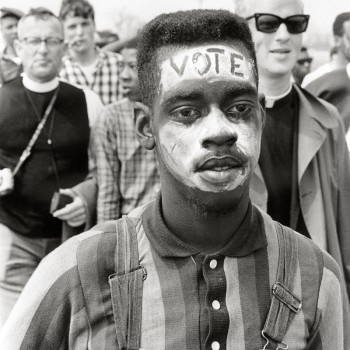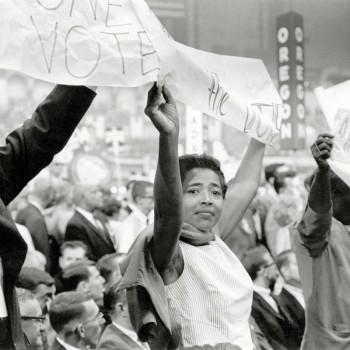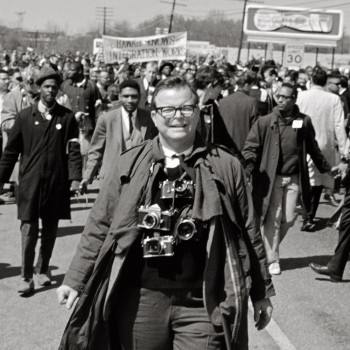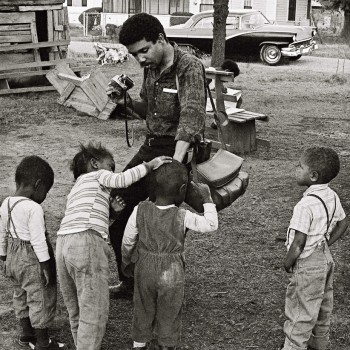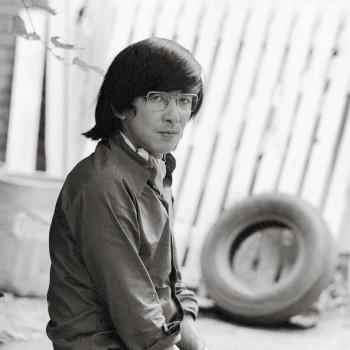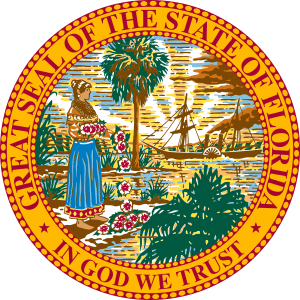
- This event has passed.
Opening Reception: This Light of Ours: Activist Photographers of the Civil Rights Movement
August 1, 2015 @ 7:00 pm - 9:00 pm
$9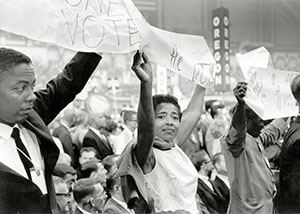
Join us for the opening reception of the exhibition This Light of Ours: Activist Photographers of the Civil Rights Movement, featuring three of the photographers whose work is part of the exhibition, moderated by Ray Arsenault, USF St. Petersburg professor and award-winning author of Freedom Riders: 1961 and the Struggle for Racial Justice.
This Light of Ours: Activist Photographers of the Civil Rights Movement, an exhibition of the Center for Documentary Arts, presents the Civil Rights Movement through the work and voices of nine activist photographers – men and women who chose to document the national struggle against segregation and other forms of race-based disenfranchisement from within the movement.
Unlike images produced by photojournalists who covered breaking news events, most of the photographers in this exhibit were affiliated with the Student Nonviolent Coordinating Committee and documents its activities by focusing on the student activists and local people who together made the movement happen.
The exhibition is comprised of 157 black and white photographs, the majority of which were taken in Mississippi and Alabama between 1963 and 1966.
$9 general admission, free to FHM members. Please RSVP by calling (727) 820-0100 ext. 271.
The photographers who will speak at the opening reception:
Bob Adelman was stirred into activism by the student sit-ins and offered his skills as a photographer to the cause. Working initially with the Congress of Racial Equality (CORE), he photographed efforts to desegregate restaurants and bus terminals on Route 40, between New York and Washington, DC. In 1963, he went to Birmingham, where the Southern Christian Leadership Conference, headed by Rev. Martin Luther King, was carrying out “Project C,” and where he took some of his best movement images. Adelman’s movement photos caught the attention of magazine editors and brought him national and international assignments and, later, acclaim. He is the author of twelve books, including Mine Eyes Have Seen, his retrospective on the movement, which Life published in 2007 in its “Great Photographers Series.”
Bob Fletcher started photographing in 1963 while working for the Harlem Education Project in New York. From 1964 to 1968, he was a SNCC photographer and covered an array of movement activities in Alabama and Mississippi. In 1968, he and a number of other SNCC delegates attended a “Congress for Writers, Artists and Intellectuals” in Havana, Cuba, the theme of which was “The Problems of the Third World.” There, he met filmmakers from Africa, the Caribbean, Latin America, and the Middle East and developed an interest in documenting the life and culture of peoples in Africa. After leaving the movement in the late 1960s, Fletcher worked on several documentary films about African independence. In 1987, he enrolled at the New York University law school and began a second career. He currently practices law in New York and Florida.
Tamio Wakayama is a Japanese-Canadian who spent his childhood in a World War II internment camp. In 1963, he skipped his final year of college at the University of Western Ontario to join the American Civil Rights Movement. After working as a volunteer driver for SNCC, he was accepted as a staff member in the Atlanta office and began designing posters and fliers for publication. SNCC photographer Danny Lyon liked Wakayama’s graphic designs and suggested he try photography, which he did. In the following year, he managed SNCC’s darkroom and, at the end of summer of 1964, he took over as the SNCC field photographer in Mississippi. He returned to Toronto in 1966 and ten years later assembled A Dream of Riches: The Japanese Canadians 1877-1977, a photographic reconstruction of the memory of the Nikkei community, which toured Canada, the U.S. and Japan, and is seen today as the opening salvo in the Canadian campaign for redress of wartime injustices.
Media partners:
Thanks to our Community Partners:

